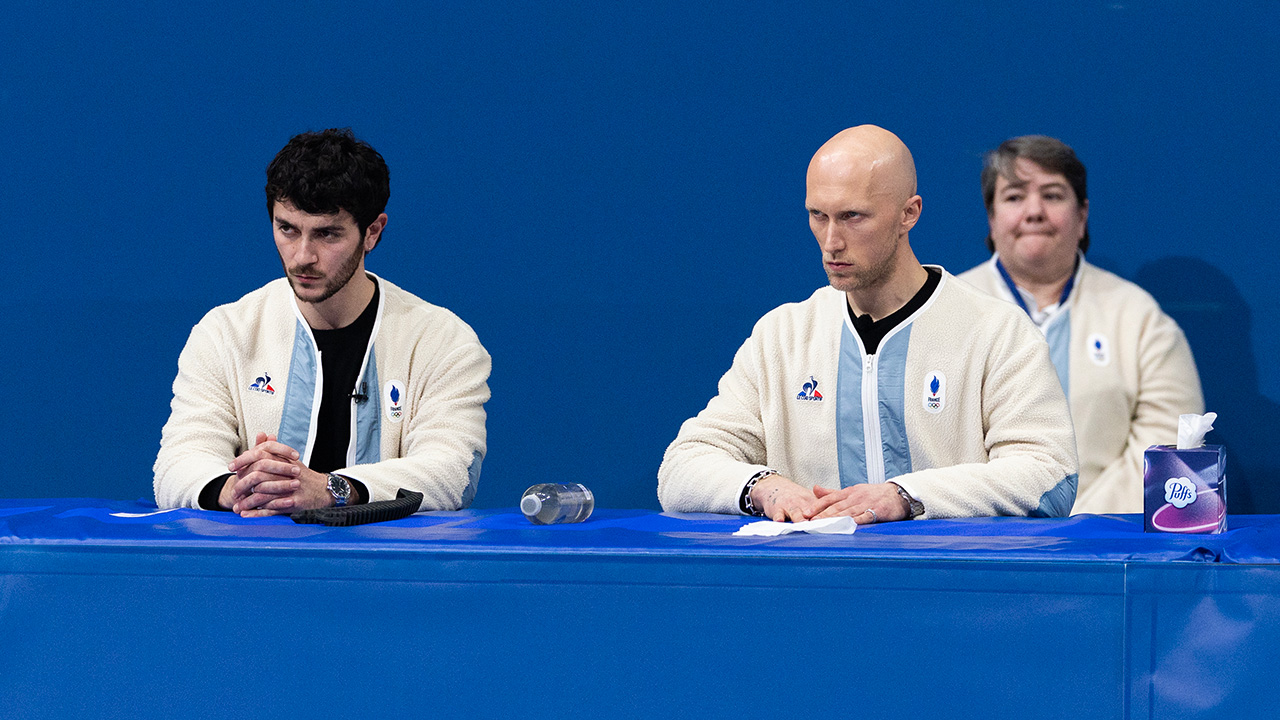Tribeca Review: Monogamy

Your Daily Blend of Entertainment News
You are now subscribed
Your newsletter sign-up was successful
Films about decent men tempted to stray by beautiful strangers are nothing new, and neither are stories about love and lust in the big city, but the same old themes get a nice modern spin in Monogamy, the feature directing debut from Muderball's Dana Adam Shaprio. Starring Chris Messina in a concerted effort to break out of his bland Hollywood Nice Guy mold, the movie is suitably creepy and lyrical at turns, and makes excellent use of its modern gentrified Brooklyn setting. WIthout presenting anything particularly revolutionary or even unique, Monogamy is still a pretty satisfying take on a basic story that's fascinated filmmakers for decades.
Theo (Messina) and Nat (Rashida Jones) are in a comfortable long-term relationship and recently engaged, sharing a loft near the Brooklyn Navy Yard and an adorable dog, and supporting each other in their various artistic pursuits-- Theo's a wedding photographer, Nat's a budding musician. A little bored with the endless stream of fussy brides and grooms, Theo has also started up a side business as Gumshoot, in which he photographs people on the sly and theoretically reveals something about them. The business is just starting to pick up when he's contacted by the terse Subgirl, who asks him to photograph her on the tennis courts, but instead masturbates, very much in public and apparently for Theo's business.
Quickly distancing himself from both Nat and his friends, Theo becomes obsessed with Subgirl, following her again to several outdoor sexual assignations with a mystery man, and poring over close-ups of her photos late at night. Even when Nat winds up in the hospital thanks to a nasty cut on her thumb, Theo can't cut himself off, and of course there are consequences. He's not cheating, exactly, but clearly Theo's experiences at a distance with Subgirl cause him to rethink his cozy relationship, even on some level he knows better.
Along with Messina's brooding, remarkably sympathetic performance, Monogamy's greatest strength is its willingness to be vague, never truly taking sides between Theo's obsessions and Nat's rational desire to have her fiancee back. Even when the film seemingly supports Theo being unfair to Nat, like berating her for not wanting to have sex in her hospital bed, the scene is followed up with a scene of him being truly awful; neither Messina nor Shaprio (along with co-writer Evan M. Weiner) are afraid to make Theo unlikeable, and allow the audience to decide whether or not to go along with him. At times I felt my feminist ire rising-- who is this guy, anyway?--but I was always ready to see where Theo's downward spiral took him next.
It's also crucial that Jones is a performer equal to Messina, helping build a believable relationship between Theo and Nat in the earlier scenes and providing a kind of outlet for the audience as we shake our heads at his ridiculous actions. As Theo's obsessions pick up speed in the third act, though, Jones is largely left out, which is a mistake; we've come to like Theo in many ways because she does, and without her Theo is simply a mess-- a fact the movie recognizes, but a little bit too late.
With elegant-- maybe a little over-elegant-- cinematography, an excellent sense of place within New York, an inventive score and a well-rounded supporting cast, Monogamy has the look and feel of something that could expand well beyond the festival, even if just for the chance to see Messina-- last seen as the cuddly uber-husband in Julie & Julia--embrace his dark side.The movie could have been a little better to its female characters (those on-screen and off) and the ending is a major letdown, but in general Monogamy is surprising for how well it tackles themes we thought had been fully examined on film.
Follow along with all of our special, Tribeca 2010 coverage right here.
Your Daily Blend of Entertainment News
Staff Writer at CinemaBlend

